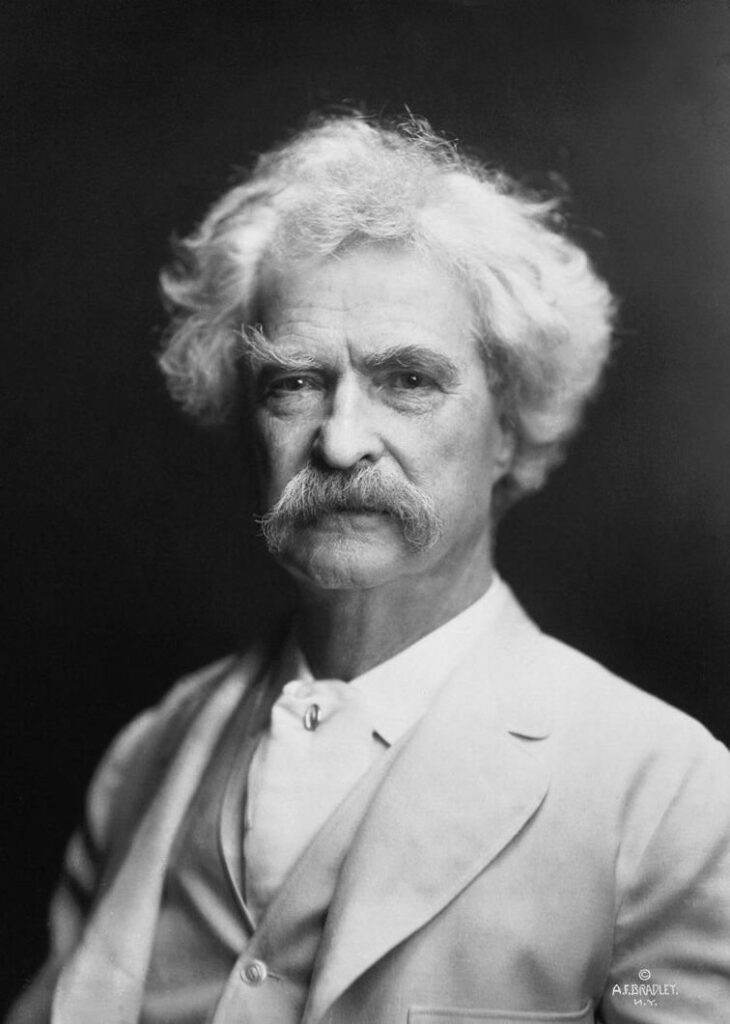
Mark Twain, born Samuel Langhorne Clemens (1835–1910), was an American writer, humorist, and lecturer who is best known for his novels “The Adventures of Tom Sawyer” (1876) and “Adventures of Huckleberry Finn” (1884). Born in Florida, Missouri, Twain grew up along the Mississippi River, an experience that would later influence much of his writing.
Twain began his career as a printer’s apprentice and later worked as a riverboat pilot on the Mississippi River before turning to writing full-time. He gained fame as a humorist and lecturer, known for his sharp wit, keen observations of human nature, and satirical take on American society.
“The Adventures of Tom Sawyer” is a semi-autobiographical novel that follows the mischievous adventures of a young boy named Tom Sawyer in a small town along the Mississippi River. It was followed by “Adventures of Huckleberry Finn,” widely considered one of the greatest American novels. “Huckleberry Finn” continues the story of Tom Sawyer’s friend, Huckleberry Finn, as they embark on a journey down the Mississippi River, confronting issues of race, morality, and freedom along the way.
Mark Twain’s writing style is characterized by its humour, wit, and vivid storytelling. He was a master of vernacular language and regional dialects, which he incorporated into his dialogue to create authentic and memorable characters and capture the spirit of the American South. Twain’s prose is known for its colloquial language and straightforward narrative style, making his works accessible to readers of all ages and backgrounds.
One of Twain’s signature techniques is his use of satire and irony to critique societal norms and expose hypocrisy. He often employed humour as a means of addressing serious social issues, such as racism, classism, and corruption. Twain’s satire is sharp and incisive, yet tempered with empathy and compassion for his characters. Overall, his writing shows a keen insight into the human condition.
In addition to his wit and satire, Twain was a masterful storyteller, adept at creating vivid descriptions and evocative settings. His writing is filled with colourful imagery and memorable scenes, drawing readers into the world of his stories and immersing them in the lives of his characters. Twain also had a talent for crafting memorable dialogue. His characters speak in a way that is authentic and true to their backgrounds, adding depth and richness to his narratives.
In addition to his novels, Twain wrote essays, travelogues, and short stories, and he was a prolific lecturer and public speaker. He was also a prominent critic of social injustice, particularly racism and imperialism, and used his platform to advocate for social reform. His works continue to captivate readers with their timeless appeal and enduring relevance.